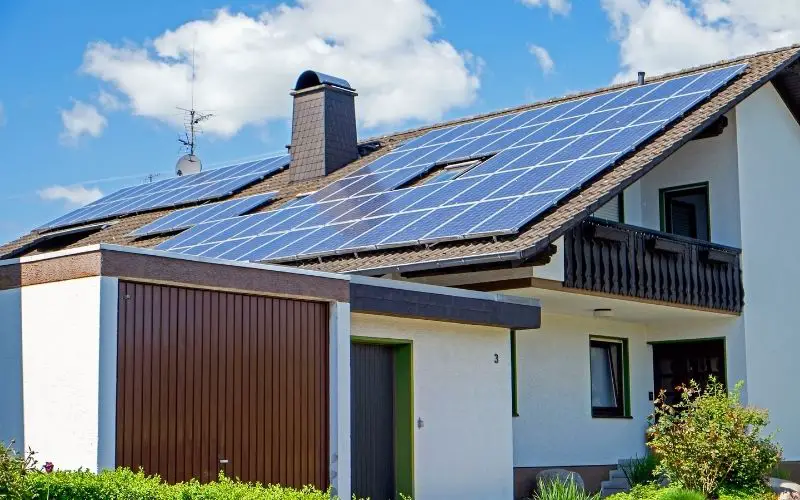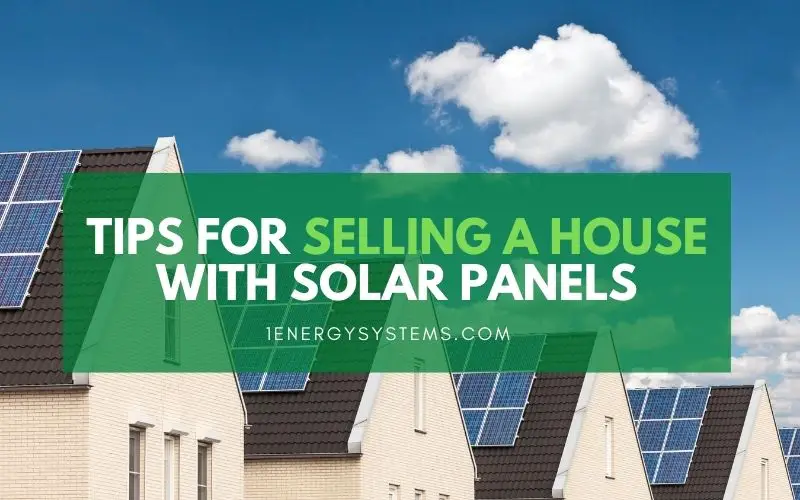You installed solar panels in your home after much research and deliberation. And, you never regretted the step even for a moment.
Now, you want to sell the house. When you are looking for buyers, some see the solar installation as an asset while others consider it a liability. This must have left you wondering what you are missing in the whole process. Where are you going wrong?
Is the process the same as selling a regular house? Do you have to take a different approach? Can you do anything to make the process easier?
Read on to find some answers to these kinds of questions that have been niggling in your mind. In this article, you will find tips to help get your solar home sold quickly and for the best price possible.
Do solar panels affect the resale value?
Time and again studies have focused on the impact of solar installation on the resale value of properties, especially homes. And, it has always pointed towards a positive correlation between solar installation and resale value.
This means, having solar panels increases the value of the property. Another positive find in the studies is the speed with which solar homes get sold in the real estate market.
No doubt these study findings are true. Unfortunately, when you put your solar home for sale in the market, your experience may be different. Weeks and months go by with no buyer in sight.
This is bound to make you wonder why. After a while, you will be so sure that you are doing something wrong that is preventing the home from attracting the right buyers.
You may be right at that. Let’s see where you might be going wrong and what you can do to make it easier to sell your property.
Problem areas when you are selling your solar homes
Most people, when they decide to go solar, may not have the financial resources for buying solar panels outright. As so much emphasis is given by federal, state, and local governments to promote solar energy, numerous financial schemes are available to fund the purchase or compensate for the exorbitant cost of solar installation.
If you have availed of solar loans to buy the solar panels at home and you have not yet cleared the loan, it can affect your home’s resale value. The same is the case when you are choosing the lease option.
This doesn’t mean you should not opt for financing or leasing. There is no harm in these options as long as you understand their implications and take the right steps to reduce its impact on your home’s resale value in case you decide to sell it before the repayment is completed.
Let’s see how this can be handled.

If you financed panels with a solar loan
At the time of the sale of your home, if your solar loan is pending, you are left with two choices. You can either clear the loan and then sell the home or sell the home and transfer the loan to the buyer. The latter works only if the buyer is willing to shoulder the burden of the loan.
Even if the buyer is willing, there are a few hitches in the process. They may find it difficult to find lenders for the home loans as most mortgage lenders hesitate to offer a home loan for homes with pending solar loans. This may prove a hurdle in the sale process.
In case the lenders are willing to overlook the risk factor and finance a mortgage, a pending solar loan can still harm the house sale. Taking on a huge solar loan is bound to raise the debt-to-income ratio for the buyer, thus bringing down the mortgage value they are eligible for.
If you financed your solar panels with a secured loan, you are left with no options. You need to pay off the loan before selling the property as the property is the collateral for the loan.
If you financed the solar installation with an unsecured loan, you can sell the property without clearing the solar loan. You can still pay off the loan before the sale or continue to pay the mortgage amount after the sale.
Homes with solar installation command higher prices in the real estate market and you can use the extra money received to clear the solar loan.
If you leased the panels
Leasing arrangements are much more complicated than solar loans. And, how you can handle the situation depends on the terms of the lease.
In some instances, the lease allows you to buy out the remainder of the lease and own the solar panels. This way, you can sell the house with a free-of-liability solar power system.
However, this is not an easy choice for many homeowners as the amount involved will be huge. In case the solar lease comes with escalating payments, this can adversely impact the buyer’s debt-to-income ratio, besides making the buyout an expensive affair.
Another choice open to you is to transfer the lease to the new buyer. This may lose you a few potential buyers but, in general, homebuyers are willing to take on the lease so that they can enjoy the benefits of a solar installation.
Another downside to a solar lease is that the house solar panels can’t be made part of your home’s assets as they cannot be counted as a part of it. Only if the buyer assumes the lease, they can avail the benefits of solar energy.
To avoid ugly exchanges and disappointments for potential buyers, be specific about the lease on solar panels. In case you advertise that your home has rooftop solar panels and the buyers find out about the lease, later on, they may lose their interest in the house entirely as they feel misled.
When you are selling, you can decide to be transparent about the solar lease and even provide copies of all relevant documents to the buyer for perusal.
How to best handle the lease arrangement?
The best choice would be to buy out the lease and offer solar panels as part of the property. But if you are facing difficulty in finding the money for the same, you may need to wait longer for a buyer who is willing to take on the lease. If you are planning to walk down this path, you better be prepared with all the information to present to future buyers.
Providing wrong or misleading information can put off buyers who are willing to assume the lease. The better prepared you are and the smoother and more hassle-free the transfer of lease is, the less reluctance an interested buyer is likely to have.
If you get a buyer who is uninterested in having solar panels, you can always buy out the solar lease and add the amount to the selling price. When the contract period runs out, the company that offers the lease can remove the panels.
Tips for selling your solar home
When you are trying to find a buyer for your home fitted with a solar installation, take care not to oversell or undersell it. You may follow these tips to ensure that potential buyers are fully aware of the value of the installation.
1. Include the solar system in the listing
Many house hunters include a solar installation as part of their checklist for their future homes. Including it in the listing can bring in more people to the open house. You may also add the highlights of the solar panels installed in your home to drive home the point.
2. Make it freehold
In case there is a loan or a lease on the solar installation, try to clear the dues and make it part of the property. There is a better chance of potential buyers being interested in it if it comes with no strings attached.
3. Provide a clear picture
Offering ambiguous, misleading, or wrong information may get you many interested buyers. But they are bound to lose interest in your property once they realize the truth. It is better to be truthful and lose those extra few rather than resort to underhand tactics.
4. Keep the documents ready
Be ready with accurate information when interested buyers want their doubts cleared. From ownership to efficiency and amount of energy production, you should have all the details at your fingertips.
Bottom line
Is solar a benefit or a burden for your home? Do they make the property harder or easier to sell? Do homes with solar panels increase or decrease the value of the property?
Most people consider solar panels as an asset and may even be ready to take on the lease to avail the benefits. However, as the homeowner, you can make the sale easier by clearing the loan or lease before placing the house for sale in the market. This will attract more interested buyers.
A solar installation is an additional feature that raises the property value. You may have to wait longer to locate that perfect buyer who is ready to shell out more for the power savings and the numerous other benefits of solar energy.
Do remember this simple point when selling your home – buyers are not interested in solar panels. They are more attracted by the reduction in utility charges and solar power as an energy backup. Focus on these aspects of solar power when you are making the pitch.
Recommended Reading:

